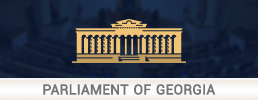Accountability to society is the main characteristic of a modern democratic state, resulting in the introduction of higher standards of freedom of information in democratic countries in the past few years.
The government is obligated to serve and be accountable to its people. Therefore, it is very important for citizens to have access to information and to know how the government budget is spent, how state property is handled, and how public policy is shaped. This is exactly what enables society to engage in the process of policy-making.
Having pledged to ensure the transparency and openness of its work, the Government of Georgia carries out its activities based on the principle of free access to information and ensures the introduction of high standards in this field.
Analysis and relevant statistical data obtained within the framework of the Public Information Database Project carried out by the Institute for Development of Freedom of Information reveal positive developments in terms of issuance and acquisition of public records in Georgia.
Since the October 1, 2012 parliamentary election, the situation related to the issuance of public records has improved even in those agencies that have been inactive in terms of ensuring access to public information for years. Along with other types of information, today public agencies issue public records that have been classified for years.
According to this institute, some 51 percent of requests for public records were satisfied in full prior to the election, increasing after the election to reach 81 percent. At the same time, the number of unanswered requests decreased from 30 percent to 11 percent. Significant progress has been achieved in terms of issuing requested public information within the mandatory ten-day period. Before the parliamentary election, the mandatory ten-day period was violated in 54 percent of cases, while dropping to constitute 27 percent after the election.
The Government of Georgia has not only improved in terms of responding to requests for public information, but even took further steps in this regard, adopting the Decree on Electronic Request and Proactive Publication of Public Information on August 26, 2013. Starting on September 1, 2013, public agencies are obligated to ensure proactive publication of information on their activities without any additional requests and in compliance with the lists and deadlines defined in the decree. All public agencies are obligated to publish information in a single format, enabling all stakeholders easily to work with, compare, and analyze proactive information provided by various agencies.
Starting on September 1, 2013, requesting electronic forms of public records by means of electronic resources became possible.
Within the reporting period, the Chancellery of the Government has carried out its activities in compliance with the norms defined in the General Administrative Code of Georgia.
In accordance with the Decree of the Head of the Chancellery of the Government of Georgia on Ensuring access to Public Information in the Chancellery of the Government of Georgia, public servants were designated within the agency to ensure access to information.
Requests for public information were mostly related to orders by the Prime Minister of Georgia, decrees and directives issued by the Government of Georgia, minutes of the meeting sessions of the Government of Georgia, official correspondence, and decisions made on communications filed by citizens.
Within the 2013 reporting period, a total of 152 written requests for public information were submitted, from which 131 were answered by the Chancellery of the Government of Georgia (including eight cases in which it was explained to the requesters that the Chancellery of the Government of Georgia was not in possession of the information requested by them); in compliance with Article 80 of the General Administrative Code of Georgia, fourteen requests were referred to relevant authorized administrative agencies; in one case, a decision to reject a request for public information was made in compliance with Article 39 of the Tax Code of Georgia, while in one case a decision partially to reject a request was made in compliance with Sub-Paragraph A, Article 2 of the Law of Georgia on Personal Data Protection and Article 44 of the General Administrative Code of Georgia; five requests are currently pending.
The Chancellery of the Government of Georgia responded to and handled requests for public information in compliance with the norms and deadlines defined in the General Administrative Code of Georgia.
Decisions to reject requests for public information were made by the leadership of the Chancellery of the Government of Georgia in coordination with the opinion of the Legal Department and in compliance with the General Administrative Code of Georgia and applicable legislation.
Decisions to turn down requests for public information were not contested. Accordingly, no litigations have been launched in court on these instances. Thus, the Chancellery of the Government of Georgia has not encountered any liability to cover any costs related to court appeals, including the liability to compensate plaintiffs.
The Chancellery of the Government of Georgia owns a database with personal information about its employees. This information is available to relevant structural entities within the limits of their jurisdictions.
No instances of violations of the provisions of the General Administrative Code of Georgia by staffers of the Chancellery of the Government of Georgia and subsequent imposition of disciplinary measures have been recorded.
According to Article 12 of the Law of Georgia on the Structure, Authority and Activities of the Government of Georgia and Rules and Regulations of the Government of Georgia, meeting sessions of the Government of Georgia are usually closed. Accordingly, within the reporting period, meetings sessions of the Government of Georgia were held in compliance with relevant legal regulations. No decision to make public meeting sessions of the Government of Georgia has been made.
In addition, the website of the Government of Georgia systematically offers the agendas of and decisions made at meeting sessions of the Government of Georgia. After each meeting of the Government of Georgia, press briefings are held by members of the Government of Georgia. Within the framework of the Open Governance initiative of the Government of Georgia, press conferences on the work of the Government and individual agencies have been held by the Prime Minister and Ministers on a regular basis.
With a view to ensuring access to public information in the Chancellery of the Government of Georgia and promoting its proactive publication, a special section was created within the website of the Government of Georgia to provide information on the work of the Chancellery of the Government of Georgia in compliance with the requirements of the Georgian Legislation.
Important steps were taken to improve electronic communication, namely:
• Important information on both the Prime Minister of Georgia and the Government of Georgia is administered/uploaded on the official website of the Government of Georgia (www.government.gov.ge), along with relevant visuals (photo, video, and information graphics). Information on activities carried out by different ministries in relation to a common topic is consolidated and offered to society as one piece of news;
• Georgian language materials are immediately translated into the English and Abkhazian languages and uploaded on the website at once;
• A unified Georgian Government Facebook page was created, where all information on the Prime Minister - as well as important information and visuals provided by various government agencies - is transferred from the website of the Government of Georgia in a timely manner;
• Another innovation implies timely and competent answers to all open questions or comments submitted by our citizens visiting the Government's Facebook page. These answers are provided on behalf of the Facebook page of a relevant ministry or via the Government's Facebook page;
• The official website of the Government of Georgia features links to Facebook and other social network pages, linking the user not to particular individuals but to official channels of the Government of Georgia. This innovation was commended by local non-governmental organizations.










